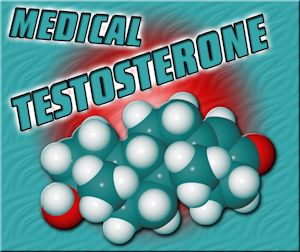Introduction to Growth Hormone Deficiency and Obesity
Growth hormone deficiency (GHD) is a medical condition characterized by the inadequate secretion of growth hormone from the pituitary gland. This deficiency can lead to a variety of health issues, including reduced muscle mass, increased fat accumulation, and diminished overall quality of life. In the context of obesity, which is increasingly prevalent among American males, managing GHD becomes particularly challenging yet crucial. Genotropin, a recombinant human growth hormone, has emerged as a promising therapeutic option in this scenario.
Understanding Genotropin
Genotropin is a synthetic form of human growth hormone that is administered via subcutaneous injection. It is designed to mimic the natural growth hormone produced by the pituitary gland, thereby helping to correct the deficiencies associated with GHD. The use of Genotropin in patients with obesity is of particular interest because obesity can exacerbate the symptoms of GHD, creating a vicious cycle of metabolic dysfunction.
The Role of Genotropin in Obese Patients
In obese patients, the body's natural production of growth hormone is often reduced, which can further contribute to weight gain and metabolic issues. Genotropin can help break this cycle by increasing the levels of growth hormone in the body, which in turn can enhance lipolysis (the breakdown of fat) and improve insulin sensitivity. These effects are particularly beneficial for American males struggling with obesity, as they can lead to significant improvements in body composition and metabolic health.
Clinical Evidence Supporting Genotropin Use
Several clinical studies have demonstrated the efficacy of Genotropin in managing GHD in obese patients. For instance, a study published in the *Journal of Clinical Endocrinology & Metabolism* found that treatment with Genotropin led to significant reductions in body fat and improvements in lean body mass among obese patients with GHD. Another study highlighted in the *International Journal of Obesity* showed that Genotropin not only helped in reducing fat mass but also improved cardiovascular risk factors, such as blood pressure and lipid profiles, in obese males.
Administration and Dosage Considerations
The administration of Genotropin requires careful monitoring and adjustment based on individual patient needs. Typically, the dosage is tailored to the patient's body weight and the severity of their GHD. It is crucial for patients to work closely with their healthcare providers to determine the most effective and safe dosage regimen. Regular follow-up appointments are necessary to monitor the patient's response to the treatment and make any necessary adjustments.
Potential Side Effects and Safety Profile
While Genotropin is generally well-tolerated, it is important for patients to be aware of potential side effects, which can include injection site reactions, joint pain, and fluid retention. In rare cases, more serious side effects such as increased intracranial pressure or glucose intolerance may occur. Patients should be monitored for these side effects, and any concerns should be promptly addressed with their healthcare provider.
Conclusion: The Future of GHD Management in Obese American Males
The use of Genotropin represents a significant advancement in the management of growth hormone deficiency among obese American males. By addressing the underlying hormonal imbalance, Genotropin offers a targeted approach to improving metabolic health and reducing the complications associated with obesity. As research continues to evolve, the role of Genotropin in this patient population is likely to become even more refined, offering hope for better health outcomes and an improved quality of life.
Contact Us Today For A Free Consultation

- Unlocking the Potential of Genotropin for Metabolic Health in American Men [Last Updated On: February 20th, 2025] [Originally Added On: February 20th, 2025]
- Unveiling the Potential of Genotropin: A Comprehensive Review of Clinical Trials and Outcomes [Last Updated On: March 12th, 2025] [Originally Added On: March 12th, 2025]
- Genotropin's Impact on Lipid Profiles in Men with Growth Hormone Deficiency [Last Updated On: March 14th, 2025] [Originally Added On: March 14th, 2025]
- Exploring the Efficacy of Genotropin in Managing Idiopathic Short Stature in American Males [Last Updated On: March 15th, 2025] [Originally Added On: March 15th, 2025]
- Unveiling the Impact of Genotropin on Growth Hormone Deficiency and Sleep Disorders in American Males [Last Updated On: March 16th, 2025] [Originally Added On: March 16th, 2025]
- Exploring the Effects of Genotropin on Lung Function in American Males with Growth Hormone Deficiency [Last Updated On: March 16th, 2025] [Originally Added On: March 16th, 2025]
- Exploring the Role of Genotropin in Treating Growth Hormone Deficiency and Osteoporosis in American Males [Last Updated On: March 16th, 2025] [Originally Added On: March 16th, 2025]
- Exploring the Impact of Genotropin on Exercise Capacity in Growth Hormone Deficient Men [Last Updated On: March 16th, 2025] [Originally Added On: March 16th, 2025]
- Exploring the Psychological Landscape of Genotropin Therapy: Overcoming Barriers for American Males [Last Updated On: March 16th, 2025] [Originally Added On: March 16th, 2025]
- Exploring the Impact of Genotropin on Bladder Function in Men with Growth Hormone Deficiency [Last Updated On: March 16th, 2025] [Originally Added On: March 16th, 2025]
- Genotropin in American Males: Pharmacokinetics, Pharmacodynamics, and Clinical Implications [Last Updated On: March 18th, 2025] [Originally Added On: March 18th, 2025]
- Genotropin's Cognitive Benefits in Growth Hormone Deficient American Males: A Review [Last Updated On: March 18th, 2025] [Originally Added On: March 18th, 2025]
- Genotropin's Impact on Growth Disorders in American Males: Efficacy and Applications [Last Updated On: March 18th, 2025] [Originally Added On: March 18th, 2025]
- Genotropin's Role in Enhancing Quality of Life for American Males with Short Bowel Syndrome [Last Updated On: March 19th, 2025] [Originally Added On: March 19th, 2025]
- Genotropin Therapy Transition for American Males: From Pediatric to Adult Care [Last Updated On: March 19th, 2025] [Originally Added On: March 19th, 2025]
- Debunking Myths: Understanding Genotropin Therapy for American Males [Last Updated On: March 20th, 2025] [Originally Added On: March 20th, 2025]
- Genotropin Therapy for Growth Hormone Deficiency in Elderly Men: Benefits and Management [Last Updated On: March 20th, 2025] [Originally Added On: March 20th, 2025]
- Genotropin's Impact on Cardiovascular Health in American Males with Growth Hormone Deficiency [Last Updated On: March 20th, 2025] [Originally Added On: March 20th, 2025]
- Genotropin Therapy: Enhancing Growth and Quality of Life in American Males [Last Updated On: March 21st, 2025] [Originally Added On: March 21st, 2025]
- Genotropin: Revolutionizing Hypopituitarism Treatment for American Males [Last Updated On: March 21st, 2025] [Originally Added On: March 21st, 2025]
- Genotropin: Enhancing Growth in SGA Children - Mechanism, Efficacy, and Safety [Last Updated On: March 21st, 2025] [Originally Added On: March 21st, 2025]
- Strategies to Enhance Genotropin Therapy Compliance in American Males [Last Updated On: March 21st, 2025] [Originally Added On: March 21st, 2025]
- Genotropin Therapy for American Males: Benefits, Side Effects, and Management Strategies [Last Updated On: March 21st, 2025] [Originally Added On: March 21st, 2025]
- Genotropin's Impact on Body Composition in American Males with Growth Hormone Deficiency [Last Updated On: March 21st, 2025] [Originally Added On: March 21st, 2025]
- Genotropin Therapy Enhances Quality of Life in American Males with GHD [Last Updated On: March 22nd, 2025] [Originally Added On: March 22nd, 2025]
- Genotropin's Impact on Turner Syndrome: Enhancing Life for American Males [Last Updated On: March 23rd, 2025] [Originally Added On: March 23rd, 2025]
- Genotropin: A Key Treatment for Growth Hormone Deficiency Due to Craniopharyngioma [Last Updated On: March 24th, 2025] [Originally Added On: March 24th, 2025]
- Genotropin's Impact on Reproductive Health in American Males with Growth Hormone Deficiency [Last Updated On: March 24th, 2025] [Originally Added On: March 24th, 2025]
- Genotropin's Efficacy in Managing GHD and Diabetes in American Males [Last Updated On: March 24th, 2025] [Originally Added On: March 24th, 2025]
- Genotropin: Cost-Effective GHD Treatment for American Males [Last Updated On: March 24th, 2025] [Originally Added On: March 24th, 2025]
- Genotropin: Enhancing Life for American Males Post-Radiation GHD Treatment [Last Updated On: March 24th, 2025] [Originally Added On: March 24th, 2025]
- Genotropin's Role in Treating Growth Hormone Deficiency in Childhood Cancer Survivors [Last Updated On: March 24th, 2025] [Originally Added On: March 24th, 2025]
- Genotropin Enhances Immune Function in American Men with Growth Hormone Deficiency [Last Updated On: March 24th, 2025] [Originally Added On: March 24th, 2025]
- Genotropin: Enhancing Quality of Life in HIV-Positive Males with Growth Hormone Deficiency [Last Updated On: March 24th, 2025] [Originally Added On: March 24th, 2025]
- Genotropin's Impact on Hearing in American Males with Growth Hormone Deficiency [Last Updated On: March 25th, 2025] [Originally Added On: March 25th, 2025]
- Genotropin: Treating Growth Hormone Deficiency in American Males with Pituitary Tumors [Last Updated On: March 25th, 2025] [Originally Added On: March 25th, 2025]
- Genotropin's Impact on Dental Health in American Males with Growth Hormone Deficiency [Last Updated On: March 25th, 2025] [Originally Added On: March 25th, 2025]
- Genotropin Enhances Exercise Capacity in American Men with Growth Hormone Deficiency [Last Updated On: March 25th, 2025] [Originally Added On: March 25th, 2025]
- Genotropin's Impact on Growth Hormone Deficiency in American Males: Benefits and Considerations [Last Updated On: March 25th, 2025] [Originally Added On: March 25th, 2025]
- Genotropin Enhances Skin Health in American Males with Growth Hormone Deficiency [Last Updated On: March 25th, 2025] [Originally Added On: March 25th, 2025]
- Genotropin Therapy: Enhancing Growth in American Boys with Hormone Deficiency [Last Updated On: March 25th, 2025] [Originally Added On: March 25th, 2025]
- Genotropin Therapy for American Males: Nutritional Strategies for Optimal Growth [Last Updated On: March 26th, 2025] [Originally Added On: March 26th, 2025]
- Genotropin: Treating Growth Hormone Deficiency in American Males Post-TBI [Last Updated On: March 26th, 2025] [Originally Added On: March 26th, 2025]
- Personalizing Genotropin Therapy for American Males with Growth Hormone Deficiency [Last Updated On: March 26th, 2025] [Originally Added On: March 26th, 2025]
- Managing Growth Hormone Deficiency Transition with Genotropin in American Males [Last Updated On: March 26th, 2025] [Originally Added On: March 26th, 2025]
- Genotropin's Impact on Hair Growth in American Men with Growth Hormone Deficiency [Last Updated On: March 27th, 2025] [Originally Added On: March 27th, 2025]
- Genotropin Therapy for Growth Hormone Deficiency in American Males with Sickle Cell Disease [Last Updated On: March 27th, 2025] [Originally Added On: March 27th, 2025]
- Genotropin Therapy for American Males with Growth Hormone Deficiency and Epilepsy [Last Updated On: March 27th, 2025] [Originally Added On: March 27th, 2025]
- Genotropin: Enhancing Growth and Life Quality in American Males with GHD and ADHD [Last Updated On: March 27th, 2025] [Originally Added On: March 27th, 2025]
- Strategies to Boost Adherence to Genotropin Therapy in American Adolescent Males [Last Updated On: March 27th, 2025] [Originally Added On: March 27th, 2025]
- Genotropin Enhances Sleep Quality in American Men with Growth Hormone Deficiency [Last Updated On: March 27th, 2025] [Originally Added On: March 27th, 2025]
- Genotropin Therapy in American Males: Long-Term Benefits and Essential Follow-Up Care [Last Updated On: March 27th, 2025] [Originally Added On: March 27th, 2025]
- Genotropin's Impact on Emotional Well-Being in Growth Hormone Deficient American Boys [Last Updated On: March 27th, 2025] [Originally Added On: March 27th, 2025]
- Genotropin Improves Vision in American Men with Growth Hormone Deficiency: Clinical Insights [Last Updated On: March 27th, 2025] [Originally Added On: March 27th, 2025]
- Genotropin's Impact on Growth Hormone Deficiency in American Males with Cystic Fibrosis [Last Updated On: March 28th, 2025] [Originally Added On: March 28th, 2025]
- Genotropin's Efficacy in Treating GHD in American Males with Rheumatoid Arthritis [Last Updated On: March 28th, 2025] [Originally Added On: March 28th, 2025]
- Genotropin's Impact on Growth Hormone Deficiency in American Males with Down Syndrome [Last Updated On: March 28th, 2025] [Originally Added On: March 28th, 2025]
- Genotropin: Managing Growth Hormone Deficiency and Asthma in American Males [Last Updated On: March 28th, 2025] [Originally Added On: March 28th, 2025]
- Genotropin's Impact on Kidney Function in American Males with Growth Hormone Deficiency [Last Updated On: March 28th, 2025] [Originally Added On: March 28th, 2025]
- Genotropin's Role in Treating GHD in American Males with ASD: Efficacy and Considerations [Last Updated On: March 28th, 2025] [Originally Added On: March 28th, 2025]
- Overcoming Psychological Barriers to Genotropin Therapy in American Males [Last Updated On: March 30th, 2025] [Originally Added On: March 30th, 2025]
- Genotropin Therapy for Growth Hormone Deficiency in American Males with Thyroid Disorders [Last Updated On: April 1st, 2025] [Originally Added On: April 1st, 2025]
- Genotropin's Role in Managing GHD and CFS in American Males: Efficacy and Implications [Last Updated On: April 1st, 2025] [Originally Added On: April 1st, 2025]
- Genotropin Therapy: Managing Growth Hormone Deficiency in American Males [Last Updated On: April 4th, 2025] [Originally Added On: April 4th, 2025]
- Genotropin's Efficacy in Treating GHD in Fibromyalgia Patients: A Comprehensive Review [Last Updated On: April 5th, 2025] [Originally Added On: April 5th, 2025]
- Genotropin Enhances Lung Function in Growth Hormone Deficient American Males: A Study [Last Updated On: April 6th, 2025] [Originally Added On: April 6th, 2025]
- Enhancing Genotropin Therapy Outcomes Through Effective Communication Strategies for American Males [Last Updated On: April 9th, 2025] [Originally Added On: April 9th, 2025]
- Genotropin's Impact on Liver Function in American Males with Growth Hormone Deficiency [Last Updated On: April 9th, 2025] [Originally Added On: April 9th, 2025]
- Genotropin's Role in Managing Growth Hormone Deficiency in American Males with MS [Last Updated On: April 9th, 2025] [Originally Added On: April 9th, 2025]
- Genotropin Therapy for GHD in American Males: Ethical Considerations and Responsibilities [Last Updated On: April 9th, 2025] [Originally Added On: April 9th, 2025]
- Genotropin: A Dual Therapy for GHD and Osteoporosis in American Males [Last Updated On: April 10th, 2025] [Originally Added On: April 10th, 2025]
- Genotropin's Impact on Joint Health in American Men with Growth Hormone Deficiency [Last Updated On: April 10th, 2025] [Originally Added On: April 10th, 2025]
- Genotropin's Positive Impact on Digestive Health in American Males with GHD [Last Updated On: April 11th, 2025] [Originally Added On: April 11th, 2025]
- Navigating Cultural Barriers to Genotropin Therapy for American Males [Last Updated On: April 11th, 2025] [Originally Added On: April 11th, 2025]
- Genotropin: Treating Growth Hormone Deficiency and Anemia in American Males [Last Updated On: April 11th, 2025] [Originally Added On: April 11th, 2025]
- Genotropin Use in American Males with GHD and Hypertension: Benefits and Risks [Last Updated On: April 12th, 2025] [Originally Added On: April 12th, 2025]
- Genotropin's Role in Treating GHD and Improving Sleep in American Males [Last Updated On: April 14th, 2025] [Originally Added On: April 14th, 2025]
- Genotropin's Impact on Bladder Function in American Men with Growth Hormone Deficiency [Last Updated On: April 15th, 2025] [Originally Added On: April 15th, 2025]
- Genotropin's Impact on GHD and Migraines in American Males: Efficacy and Safety [Last Updated On: April 16th, 2025] [Originally Added On: April 16th, 2025]
- Genotropin Therapy: Enhancing Outcomes with Family Support and Technology [Last Updated On: April 17th, 2025] [Originally Added On: April 17th, 2025]
Word Count: 552



















